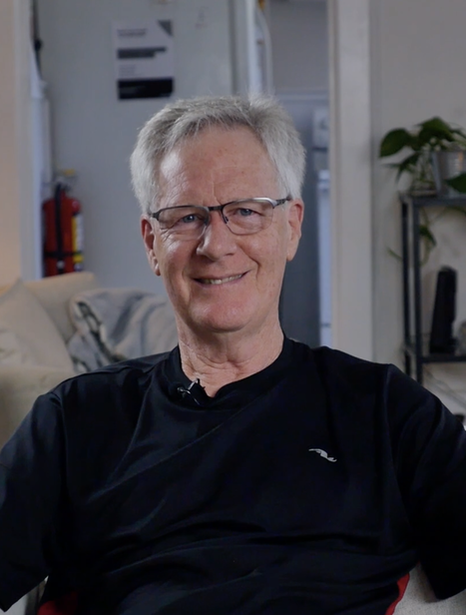|
8/26/2021 1 Comment Protecting the ThroneChristine Olding
Lately, and really for the past few months, I have been feeling called by the Father to pull away from my environment of busyness, to-do lists, and from activities of creating more things to do. To step back from the frenzy of reengaging around me, and instead deliberately create a large space in my life for just the Father and me. As my world seems to want to dive into a fast-paced life of freedom out of (hopefully) post pandemic isolation, it seems counter cultural to step back, at a time when everyone is rushing forward! To step back into Him and protect time for His presence to take centre stage in my life, my work, and my relationships. Rather than allot Him a slot in my days between the work, programs, and activities that my post pandemic freedom allows, I’m feeling called to refrain from engaging in the “more,” especially if it takes away from us, our time, from His place on the throne of my life and my heart. The extrovert in me, who laughs loudly, weeps freely, and loves people dearly would normally dive into these new events with a passion. I have already done so many times before, only to end up losing myself and my Father in the buffet of events and projects my life presented me, becoming driven by the need to produce and provide instead of noticing my need to learn to follow. So I am being called to step back now, into His presence, to protect the slowness, to protect our relationship, the Father’s and mine, to protect the throne of my life as being fiercely and functionally only for my Father and my Lord. To protect time for His presence to flow, for worship. To protect our intimacy cultivated through a long-enforced time of quiet. Quiet because of global decisions that slowed my life down, and that the Father and I used to grow together. And one way God is calling me to invest into our time together is through praise and worship. Not the event of worship but the act of praise and worship, and giving this the time and priority which is sorely needed. I enter His courts with praise (Psalm 100:4), and how better to enter His presence? The Lord inhabits the praises of His people (Psalm 22:3). Do you know what means? The psalmist tells us that God inhabited the praises of Israel. He uses the word yâshab, which according to Strong’s means to abide, to sit, to tarry, to remain. This is what the Father does with us when we praise Him, and then we enter into worship and deeper relationship with HIm. Because cultivating a close intimacy with my Father, to walk through each day with Him, both of us hand in hand, experiencing and living life together, is more vital, more life giving and freeing than any collection of new activities and events our newfound freedom can offer. Our continual act of worship and praise is our circulatory system for His presence. I am continually learning that only by deliberately investing into my relationship with my Father over everything else, with my time and priorities, will I ever truly be able to contribute to, rather than consume, whatever I engage in. I am then able to bring the fruit of our relationship with me. Be blessed, loved ones. Christine
1 Comment
Christine Olding God’s kingdom is a kingdom of growth and change. Growth results in change. An acorn does not look like an oak tree, and yet the tree began as that small acorn. My father told me once, “life is a never-ending series of change.” And he placed the challenge before me early on in my life. Fight change and you will be fighting life itself, for the rest of your life. Or learn to accept and hopefully embrace change and life will be a platform for growth and be good. We know not all change is good: an ill-timed death of a loved one, a relationship, a marriage. Sickness and job loss, family tragedy can all bring change we would rather not have. But if we really believe God... “And we know that in all things God works for the good of those who love him, who have been called according to his purpose. For those God foreknew he also predestined to be conformed to the image of his Son, that he might be the firstborn among many brothers and sisters.” Rom 8:28-29 His purpose was that we were to be conformed into the image of Jesus! I don’t know about you, but the more I look like Jesus, the more different I will look! I cannot crave the familiar and grow at the same time, and neither can the Bride of Christ. Growth by its definition changes
“Do not be conformed to this world, but be transformed by the renewal of your mind, that by testing you may discern what is the will of God, what is good and acceptable and perfect.” Rom 12:2 But how do we grow and take care of ourselves at the same time? This can be confusing because growth is often uncomfortable, so loving ourselves while growing is vital. The trick is to learn what that looks like, and what it does not look like. Allow me to share what I have learned about self-care vs self-indulgence. Growth and self-indulgence work against each other. Growth and self-care work synergistically. Self-indulgence is born out of a goal for self-comfort and pleasure, often sacrificing a moral compass for pleasure and comfort. Self-indulgence can be motivated by escapism, boredom, lack of hope and so much more. It spirals downwards and can be often fed by the need to cover shame. We feel shame so we try to defend ourselves by seeking pleasure as proof that we deserve it and that we have worth, because we ultimately believe the lie that shame speaks that we are worthless. Ugh anybody else relate here? I know I do! But self-indulgence is its own unquenchable reward, constantly seeking pleasure with the goal of validating ourselves. Because without the reward of pleasure we feel the shame. And this is where addiction creeps in… Self-care is self-explanatory. It is caring for ourselves but it may or may not involve pleasure. What? I might not feel good? Yes, it might not always feel good. But it is good. It could be exercise or a doctor’s appointment or counselling. It could be a night off with friends, sleeping in or a vacation. Sound better now? Of course, self-care can feel good! It is behaviour that exists because of the underlying truth that we are worth caring for. It is guided by the truth that we have value, that we are worth investing into. And it is brutal to engage in when you are struggling with shame. Self-indulgence numbs us and self-care validates us, and when shame is an issue, authentic validation is horribly difficult to accept much less voluntarily engage in. Self-indulgence avoids growth and authenticity; self-care seeks it out. Self-care has as its goal health, wholeness, connection and relationship with God. And while goals of health and growth often require us to engage in behaviour that is not fun and may not feel good in the moment, they produce lasting fruits in our lives we so desperately need. |
Blog Authors Christine oldingClaudia OngoBruno IerulloRichard PaulRob ReidJustin madoniaSteve OngoArchives
August 2023
Categories |







 RSS Feed
RSS Feed